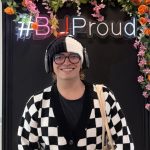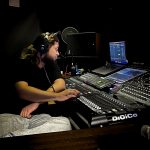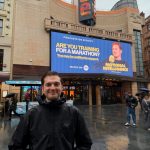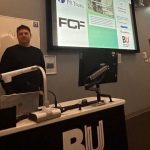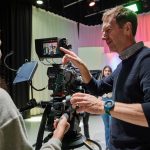Produced by kdanceydowns
Bournemouth University graduate Craig Tonks was a part of the Oscar-winning team that worked on the visual effects for Interstellar. The Double Negative (Dneg) employee studied MA Digital Effects Course, graduating in 2011. We caught up with him to find out what it was like working on an Oscar-winning film.
What were your first steps from BU into industry?
The industry was quite quiet when I left and I struggled to get into the bigger companies straight away. After working on my show reel and a little networking I was asked to make a VFX training video for online company CMI Vex, a month after which I had a short stint at Realise Studios who are a small but mighty post-production company in London.
After that I landed at Double Negative and have been here ever since!
Can you explain your work on Interstellar?
My work on Interstellar was extremely daunting, challenging and rewarding – made even more so for it being my first big film job and first project for Dneg. I was put on the Tesseract Sequence from day 1, initially exploring the concept and how it could be visualised with VFX along with the main supervisors. We worked towards something that could be built partially as a Set to film on and re-adjusted our systems to these sets once footage had been filmed. From here we worked towards the final setups and looks, which I co-Led with another MA Digital Effects graduate Adam Gailey. I focused on and provided support for the threads that connect everything in Murphs room to the next room in time, and Adam maintained the creation of the tesseract structure.
What does it feel like to be part of a BAFTA and Oscar winning team? Did you think you’d see such success in your career?
When I got the news that I would be working on a high secrecy Christopher Nolan film I couldn’t have been more excited, and as the show went on it felt like a very special thing to be part of. We knew it had the potential to win awards but you never know until it’s all finished, and I couldn’t be prouder of my work and the people I worked with on it.
It’s all been quite a shock to be so involved with something so large, and with the recent BAFTA win its only now starting to sink in what we’ve achieved (despite the work starting in June 2013!).
What advice would you have for any students reading this?
When I came out of university I found it quite tough initially but I just found as long as you keep learning, and self-improving, you can still get the dream job you want. VFX can be hard to get into but courses at Bournemouth will give you the best possible chance of succeeding.
Originally published on BU News.
